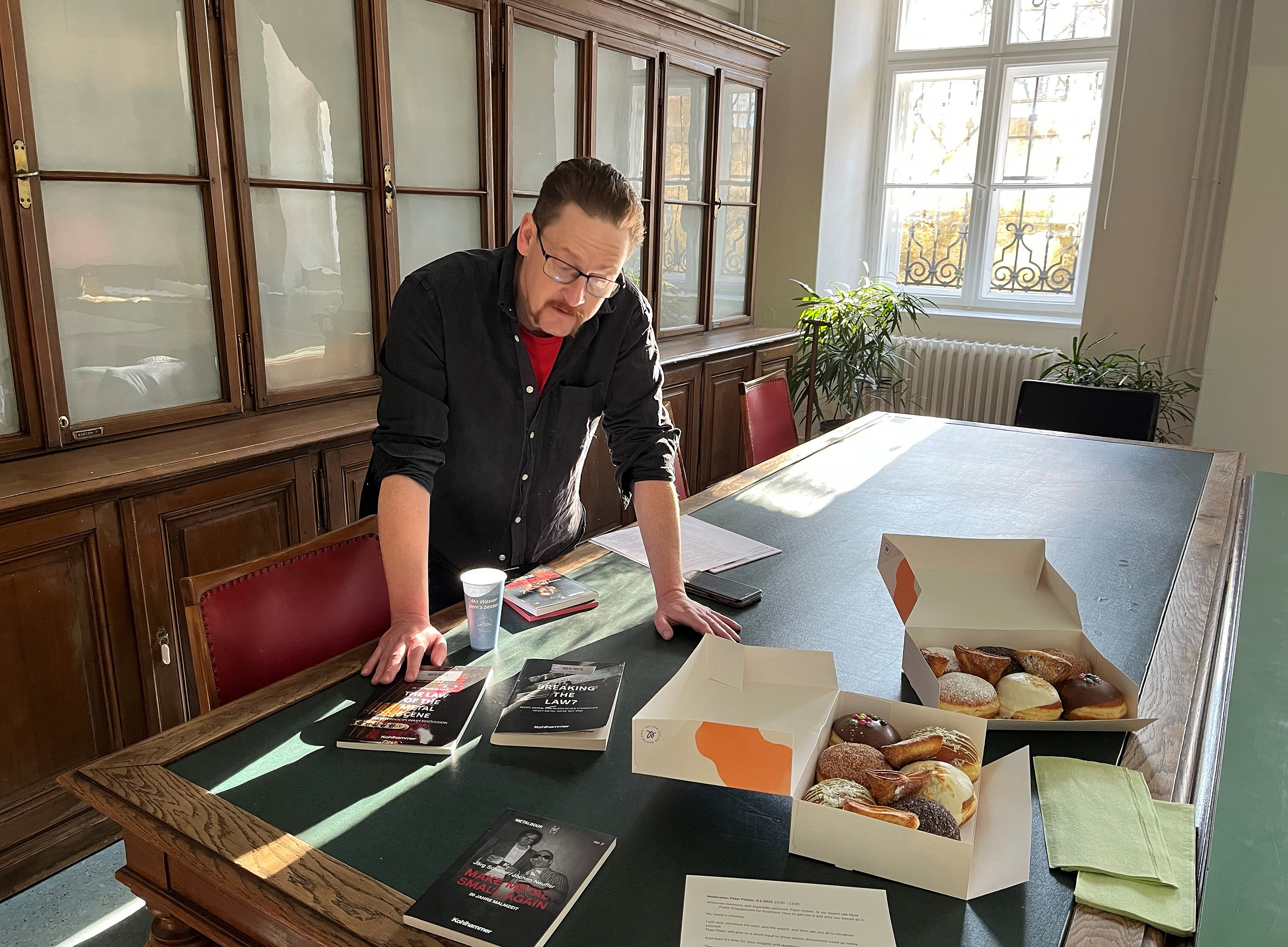"You can prepare, but you have no control over the consequences."
On February 5, 2025 in the university archive, a group of ten researchers came together to talk about risks associated with science communication (and eat some Krapfen). This is a recap on this expert talk with Peter Pichler.
The historian (and heavy metal researcher) started off with this statement:
The environment for science and science communication is currently changing drastically. Illiberal and authoritarian discourses are gaining interpretative sovereignty. It becomes increasingly difficult for researchers to be seen as trustworthy and to provide guidance in expert matters.
While the value of making research findings broadly accessible is clear to many postdoctoral researchers, many still find themselves (rightly) afraid of "saying something wrong in public" - especially in the above circumstances.
Discussants shared examples of "risky" situations they found themselves in, like being asked to comment on a well-known music scenes' political tendencies or describing lifestyle-related risk-factors for heart disease.
Peter describes his own strategies to be comfortable "putting himself out there" with his research findings:
- Reassure yourself of your own expertise through research and update your knowledge if necessary.
- Consciously adopt the speaking stance of an expert who describes the background mechanism in general and in neutral language, and do not discursively label or tag individuals.
- Reflect deeply and self-critically about the impact your interview may have on those you are talking about and on yourself.
More general points of our discussion were:
- Getting off Twitter, out of our bubble and into physical spaces where there is a mix of people that could potentially be interested (libraries, hobby club coffee mornings, schools, rural restaurants, festivals/film screenings, soapbox science events...)
- Use a testing audience (family, restaurant patrons,...) when you have a critical communication situation you are preparing for.
- Risk assessment can include thinking through impact on all your research's stakeholders (funders, those who have lived experience with your topic, disciplinary community, industry partners, research team members, employers...).
- Preparing can include familiarizing yourself with networks that protect science communicators and gettting help from your university.
- Explore benefits of different mediums (art, text online, physically on stage, using your face on social media, film...).
- Being confident in the value of your research (even if it's not immediately aparent how it can save the world).
- The awareness that in acts of communication, things can turn out differently than intended, and every new opportunity is a chance to try it again and improve your message.
It was especially valuable to have the different perspectives in the room, of, e.g. linguists, biochemists, biophysicists, historians, and those whose professional work it is to communicate the science of others.
Resources:
Here is a general info page with tools for sci comm: How to communicate my research results and engage the public?
Here are some support points for researchers who do public engagement:
- Mayday-Button – neues Feature im WissKon-Netzwerk - Nationales Institut für Wissenschaftskommunikation Nationales Institut für Wissenschaftskommunikation
- „Science Care“: Rückenstärkung für angefeindete Forscher - science.ORF.at
- Scicomm-Support
(Report: Johanna Stadlbauer, 5.2.2025)
